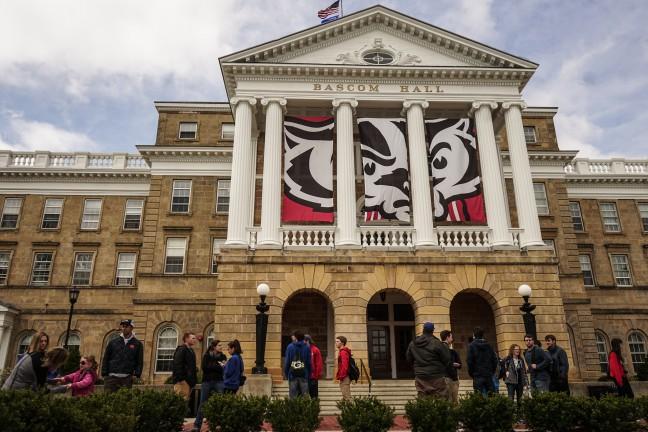According to newly-published rankings by the Center for World University Rankings, the University of Wisconsin-Madison is ranked the 25th best university in the world, up from 27th place last year.
According to UW’s University Communications, there are two notable changes regarding the latest CWUR rankings. First, as stated by UW University Communications, the university’s Quality of Education ranking, an important indicator measuring the weighted number of alumni who have won major awards, medals and prizes relative to the university’s size, went up from 65th last year to 28th this year.
The university’s Research Output/Performance score also notably improved, from 32nd last year to 27th currently. University Communications said this measurement is a mix of faculty research output, citations of their work and other factors.
Private funding also helps the university maintain its competitive edge. According to the Wisconsin Foundation and Alumni Association, private donations by individuals and organizations account for approximately 18 percent of UW-Madison’s budget, and as of December 31, 2018, the total value of WFAA endowment reached $2.832 billion.
The WFAA said the organization works closely with donors to provide financial support for various initiatives and scholarship programs. According to the WFAA, former UW alumni Ab and Nancy Nicholas made one of the largest donations in UW-Madison’s history — a $50 million matching gift back in June 2015. Together with other donors, Ab and Nancy Nicholas raised $100 million in total for the UW community, which was then channeled to benefit prospective students in the form of scholarships and academic awards.
While maintaining its academic reputation nationally, UW also sees global recognition, attracting students from across the globe. UW sophomore Yilin Li, an international student from China who came to UW almost a year ago, said the university’s academic achievements were the major factors that motivated her to apply.
Li said UW’s undergraduate psychology program was what had attracted her to UW.
Li added that taking advantage of UW resources was also important. She recently applied for the Undergraduate Research Scholars program, which consists of a weekly seminar and matching with faculty and mentors with whom to conduct a research project.
Li hopes to tap into the opportunity to further enrich her research experience as an undergraduate student.
“[The position as] a research assistant is not very easy to get, especially for freshmen and sophomore as we do not have any experience in research before, so this program helps us students to get research opportunities,” Li said.
Similar to Li, domestic student Alyx Hach also appreciates the opportunities UW offers for students to acquire practical skills outside their classrooms.
As a student majoring in Communication Sciences and Disorders, Hach said there are various programs highly relevant to what she is studying in the classroom where she can gain real-life experience.
Hach said the Waisman Center on campus runs programs for children with different speech disorders where she can get involved and observe how professional staff execute their duties. The Waisman Center also provides other resources for families with children with intellectual handicaps.
“You do not have to go out of your way. There are places on campus that can help you get your foot in the door and see what the major is all about,” Hach said. “I feel like if I went to a smaller university or somewhere else, I may not have the chance.”
Besides the various academic opportunities offered by the university, both Li and Hach positively noted the atmosphere on campus.
Li lived in Chadbourne Residence Hall her freshman year. She said the study room in the basement level of the building was always full, especially during winter times when the cold hit. Everyone would just study quietly.
Hach observed that most students on campus are very academically motivated. She said it is very easy for her to find people to study with, and they regularly help each other out.
Regarding academic rankings, University Communications made a special note on how such rankings influence university policies. They said that while the university appreciates receiving positive recognition from different ranking systems, it will prioritize the needs of students, faculty and staff members when making academic decisions.


